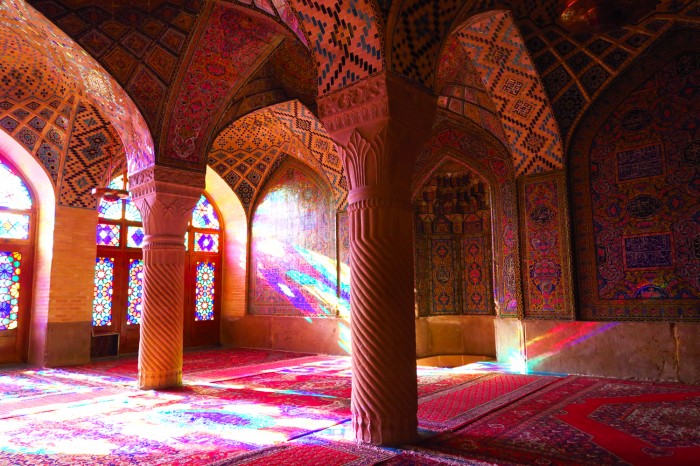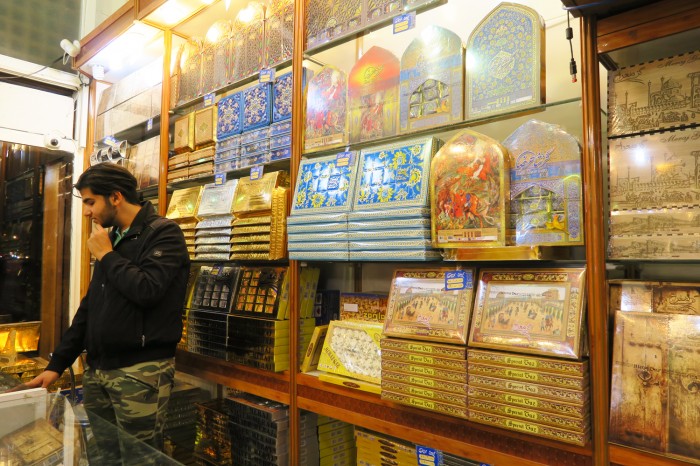If Iran is your next travel destination, you’ve made an excellent choice. I’ve seen a fair bit of the world, but no country has warmed my heart and soul as much as Iran did. In fact, I love this country so much that I’ve visited Iran no less than four times!
It is my personal mission to share the beauty of Iran to everyone I know, and hence I’ve compiled this list of travel tips. Whether you are backpacking on a tight budget or going for a family holiday in Iran, I am very sure that you will find some valuable information here. So read on as you get ready for your Persian adventure!
[Amidst rising tensions in the Middle East, we recommend that travellers exercise extreme caution if planning travels to Iran, and potentially to delay non-essential travel.]
Also read: 7D6N Turkey Itinerary: Istanbul, Cappadocia, and Ankara
1. Dress appropriately
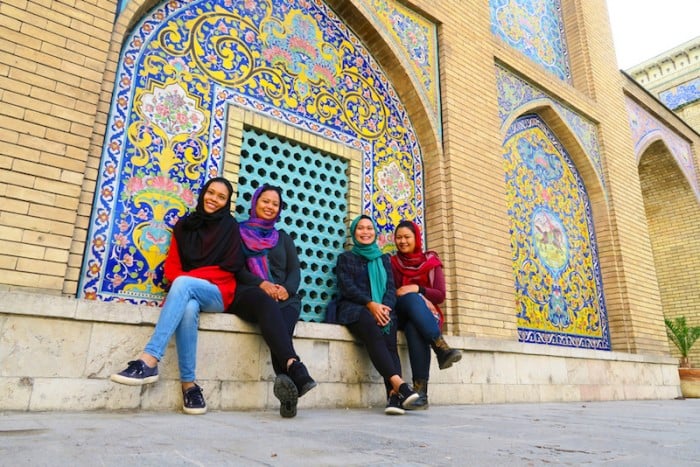
Golestan Palace, Tehran
First off, how should you dress in the Islamic Republic? For females, wear a loose-fitting, long-sleeved top that covers your bum, as well as long pants. A manteau (or a coat) would be perfect in spring/autumn. Also, have a scarf ready before you board your flight. As the plane lands, you’ll see Iranian ladies putting on their hijab, even if they were drinking wine during the flight. This is your welcome to Iran.
For men, t-shirt and jeans or long pants are perfectly fine! Don’t wear shorts unless you’re on the Caspian shores or on Kish island enjoying the beach.
2. Bring all the cash you need
Cash is king in Iran! International cards are not accepted in Iran at the moment, though I believe this would change in the near future. For now, bring all the cash you need, preferably in Euros or USD, and change them to the local currency when you get to Iran. There is a money changer on the second floor in the arrival hall of Imam Khomeini Airport (IKA), and the rates were pretty good the few times I was there.
It’s also possible to get a “tourist card” with Bank Melli for those who don’t want to carry so much cash with them, though I have no experience with this.
3. Don’t get confused by Toman and Rial
Here’s the deal: while rial is the official currency, toman is more commonly used by locals. Just add one zero to the price (in toman) you’re quoted, and you’ll get the price in rial. For example, 10,000 toman is 100,000 rial.
Sometimes, the shopkeeper might just say “ten” and you have to figure out how much that is. Familiarise yourself with the exchange rate. This way, you can gauge how much that particular item/service you’re paying for should cost, and you’ll get the answer.
4. Stay connected by buying a prepaid SIM Card with data
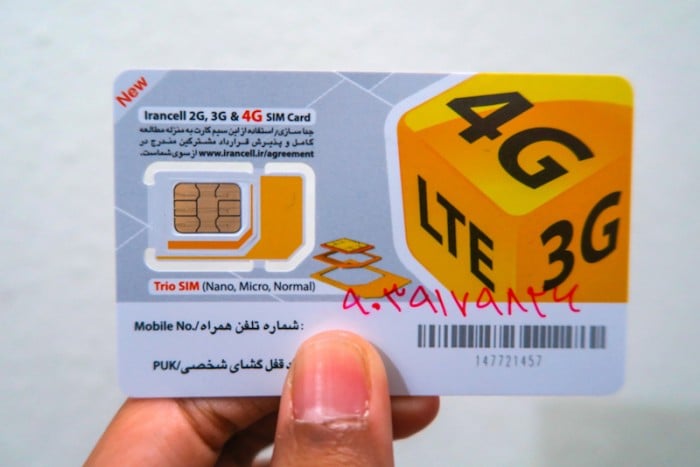
Irancell SIM Card
There are SIM card booths at the airport, but I heard that getting a SIM card there is more expensive than getting it at the city centre. You can easily purchase a SIM card at a newspaper/convenience store in Iran. Last I did it, the Irancell SIM card costs 300,000 rial. Purchase credit which you can get in denominations of 20,000/50,000, etc. rial. It comes in the form of a little card slip that you have to scratch to reveal a 16-digit number. To top up your card, dial this: *141*[16-digit number]#
You will get SMSes from Irancell which are in Farsi. Get an Iranian to change the language to English. For all the menu options, dial *555#. If you need data, purchase a data package from the menu options. As a rough gauge, 150,000 rial credit will get you more than 2GB of data.
5. Visit the tourist cities like…
Most travellers who have 1–2 weeks in Iran will visit the cities of Tehran, Kashan, Isfahan, Yazd and Shiraz, with a trip to Persepolis too. For your first trip to Iran, you can follow this route to see all the quintessential tourist attractions in Iran.
Check out the beautiful photos below to see what awaits you in these cities:
Tehran
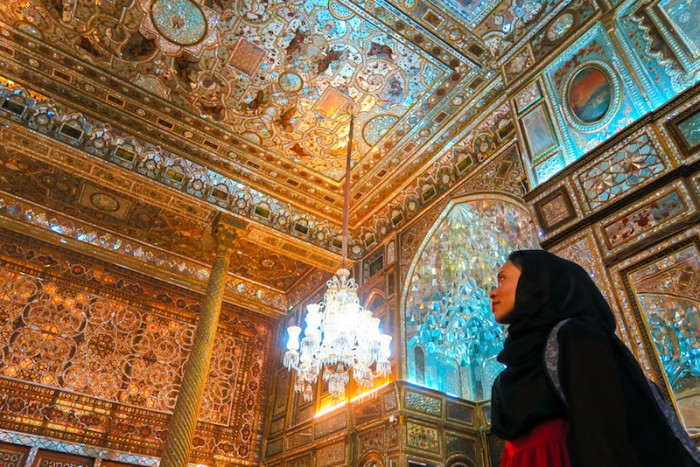
Wind chamber in Golestan Palace
Kashan
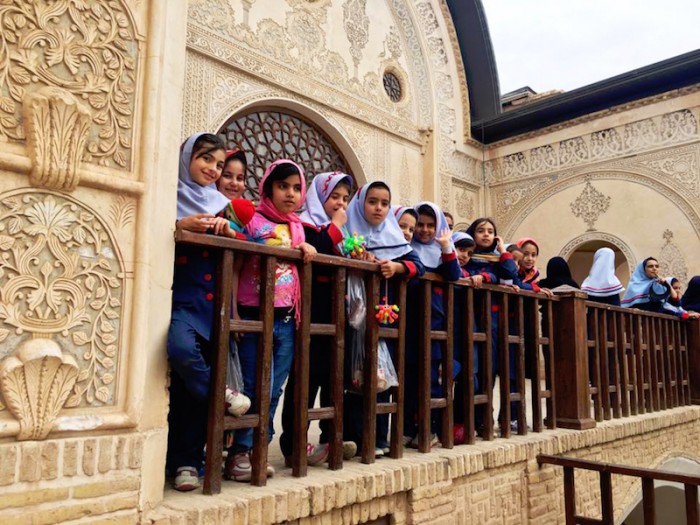
Tabatabaei House
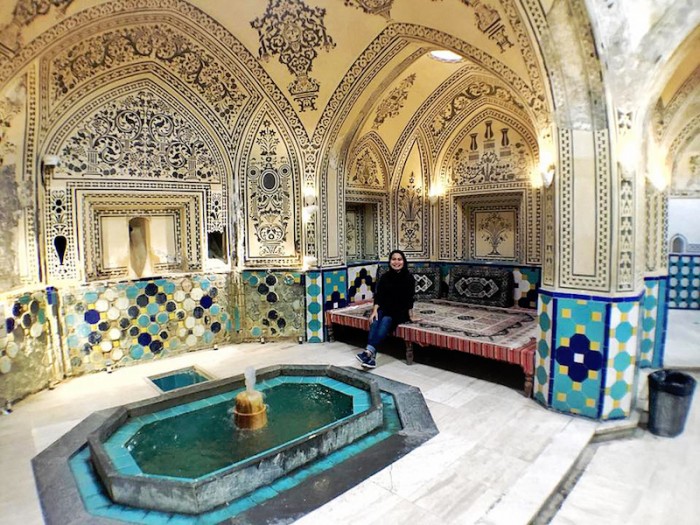
Sultan Amir Ahmad Bathhouse
Isfahan
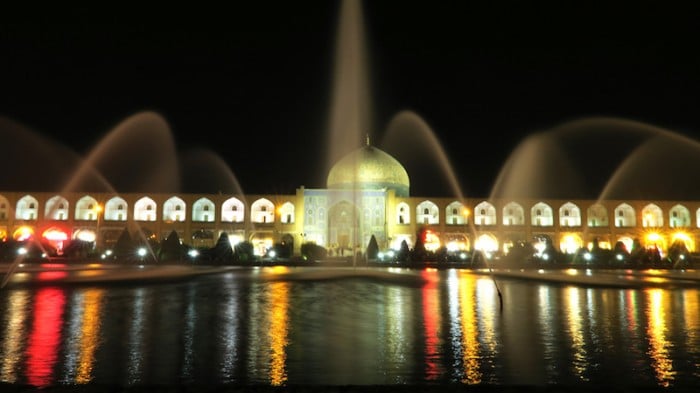
Imam Square
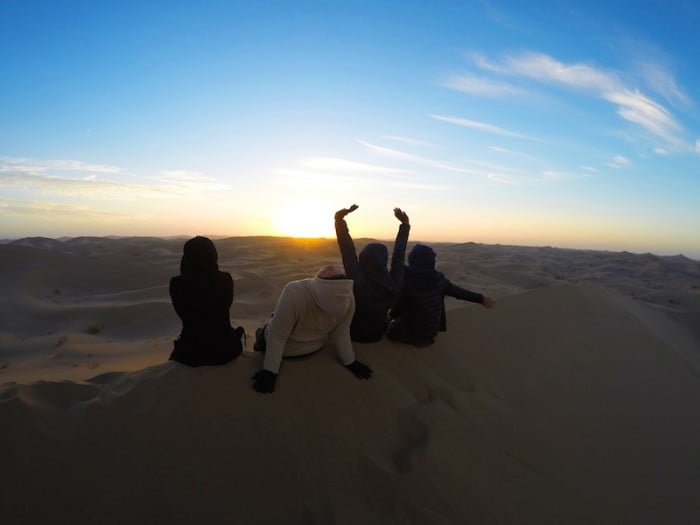
Varzaneh desert near Isfahan
Yazd
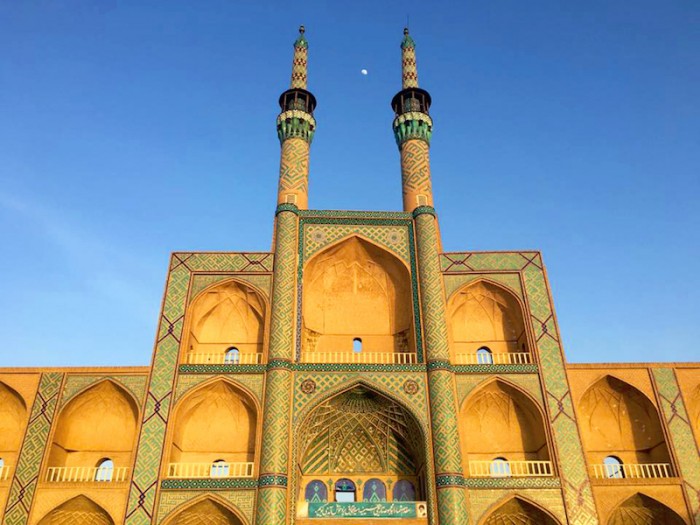
Amir Chakhmaq Complex
Shiraz
Nasir ol Molk Mosque (or Pink Mosque) in Shiraz
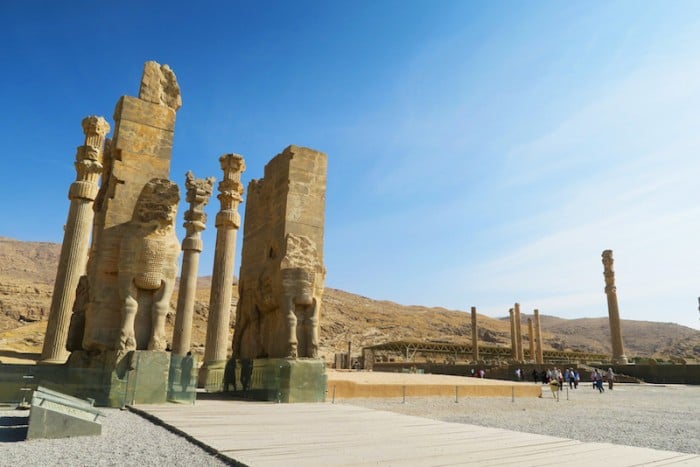
Persepolis
6. Get off the beaten track
Of course, if you prefer to venture off the tourist path, good for you! Iran is simply huge and there are SO MANY PLACES that I have yet to explore! Sadly, I can’t truly say that I’ve ventured far off the beaten path. However, I was still lucky to have visited some gorgeous little towns like Kandovan and Masuleh, and cities that are not-so-touristy like Kerman, Maku, Rafsanjan, Rasht and Tabriz.
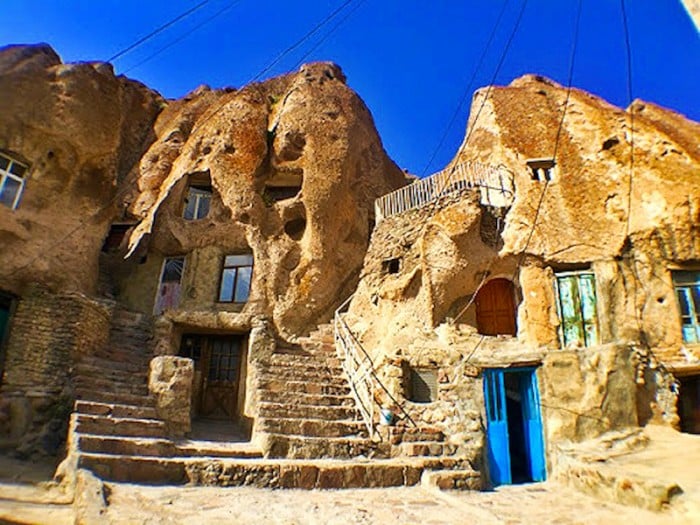
Kandovan, an ancient rocky village near Tabriz
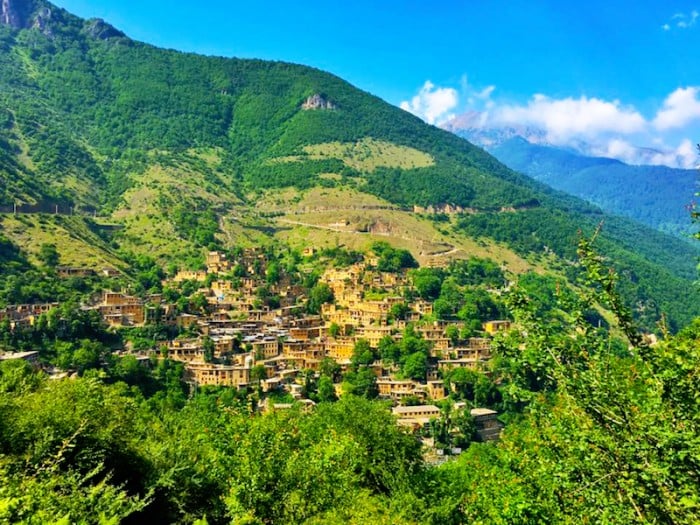
Masuleh, a picturesque little town tucked in the mountains near Rasht
7. Take VIP Buses to get from city to city
To move around between cities in Iran, I recommend taking buses, specifically VIP buses. Some of the best bus companies are Seiro Safar, Hamsafar and Royal Safar. The seats are wide and comfortable, and snacks are given for the journey. If your commute is longer than six hours, consider an overnight VIP bus, as you can save travel time and a night’s worth of accommodation.
To buy your bus ticket, go to the bus terminal. In major cities, you’ll find many men calling out places like “Tehran!” “Shiraz!” “Isfahan!” Simply walk up to them and tell them your destination. They will guide you to the correct ticket counter to buy your tickets. To check the schedule of the buses or to book in advance, get the help of an Iranian friend who can do this online, or check with the receptionist at your hotel/guesthouse.
8. Always bargain when you enter a taxi
Taxi drivers who charge tourists more than locals can be found in every country, not just Iran! While I’ve encountered plenty of honest taxi drivers, always be prepared to bargain. And when you feel that you’re getting ripped off, simply walk away. As a rule of thumb, in most cities, the taxi ride from the bus station to your hotel in the city centre should cost around 100,000 to 200,000 rial.
Also, do note that the taxi fare from Imam Khomeini Airport to the city centre is roughly a whopping 800,000 rial (about US$25). You can try this taxi app called SNAPP (available on Android and iOS) which is similar to Uber, or even better, make friends with some travellers at the airport to split the taxi costs.
9. Useful websites to check out
Accommodation and transport bookings in Iran are best done offline – by calling hotels for reservations, going to the terminal for bus tickets, or to a tour agency for flights. However, those in need of advance bookings should try the websites below:
TAP Persia covers bookings for accommodation, transport (bus, plane, train, flight tickets), as well as tours and activities. On top of that, they offer visa and car rental services, and also provide tourist cards for travellers who do not wish to carry too much cash with them. Online payment can be made through Paypal for any bookings on the website.
Accommodation: Unlike many other countries, the selection of Iranian hotels in hotel booking websites are limited. However, there are a few channels you can try, and the main one is Hotels in Iran, which accepts payments through Paypal and Visa/Mastercard. There is also OrientStay, which is the Iranian version of Airbnb and Homestay, where you can rent a room and stay with locals.
Transport: For flight bookings, try Persia Travel Mart which allows payments using credit cards. Many other flight websites are either not in English or require an Iranian credit/debit card for bookings. For trains, check out the unofficial railway website (iranrail.net) though Iranians normally use the official railway website (raja.ir).
For any help with getting visa, booking flights and finding tours (or anything at all), feel free to contact the most resourceful Iranian friend I have, Hakan. He lives in Tehran and you can reach him on WhatsApp at +98 919 445 1036.
10. Download multiple VPNs
Facebook, YouTube and plenty of media channels are banned in Iran, so download that VPN before you come. In fact, go crazy and download multiple VPNs – you won’t know which one will work best for you. For iOS, I recommend OpenDoor and Hotspot Shield. For android devices, try Cloud VPN and Psiphon. Good news: WhatsApp, Telegram and Instagram are NOT banned.
11. Use Couchsurfing to meet and live with locals
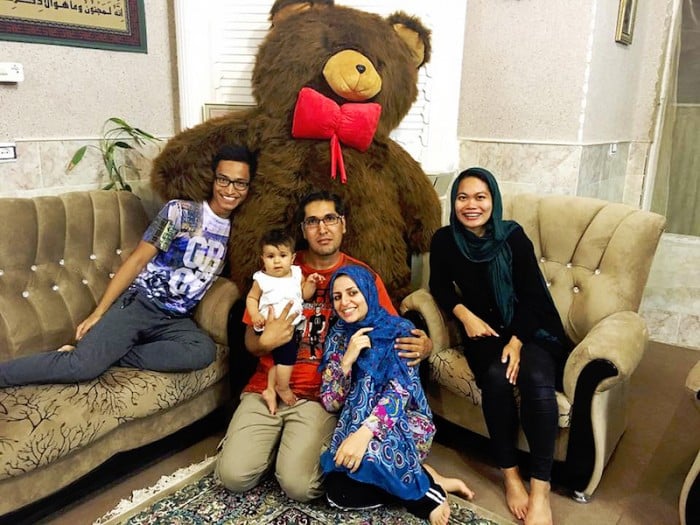
My lovely hosts in Rafsanjan
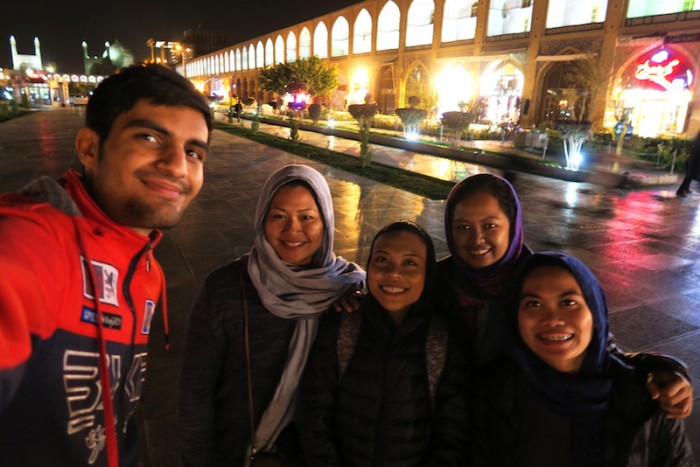
Walking around the city with Ali, our favourite person in Isfahan
Let’s not forget Couchsurfing! The Couchsurfing community is Iran is very active and I recommend travellers meeting some locals through this platform. You can find a host and stay in their home, or simply meet up with locals in the city. Just don’t take advantage of the Iranian hospitality that you’ll receive – remember to give back to your hosts one way or another!
12. Stay in a traditional hotel or guesthouse
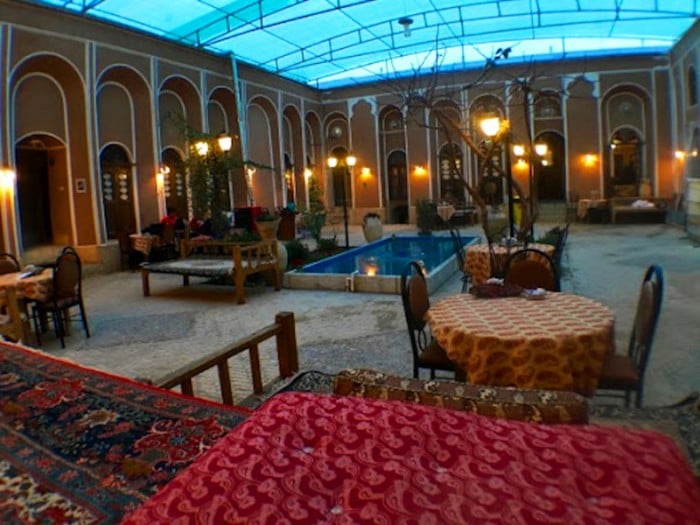
Orient Hotel in Yazd
A must-have experience in Iran is staying in a traditional house. You will enjoy a beautiful living setting, with rooms surrounding an inner courtyard where you can relax and soak in the atmosphere. Three that I stayed in are Orient Hotel in Yazd, Niayesh Hotel in Shiraz and Ehsan Guesthouse in Kashan.
13. Be prepared that hotels are usually NOT value-for-money
While transport and food are quite affordable in Iran, hotel rooms are not, especially in Tehran. At least, this is according to my standards. Dorm rooms are around US$15–20/night, and more often than not, the facilities are just basic. Mid-range hotel rooms can go around US$60/night and higher, and similarly, don’t expect a huge room with ultra-comfy mattresses and western toilets. I’ve stayed in hotels/hostels around the world that are half the price but twice the comfort.
My advice is simple: lower your standard and don’t expect so much and you won’t be too disappointed.
14. Say YES to squat toilets
First world travellers, embrace the squat toilets in Iran! It may feel strange and uncomfortable at first, but just quit whining – the natural squatting position is good for your bowel movements.
15. Set aside a considerable budget for entrance fees to attractions
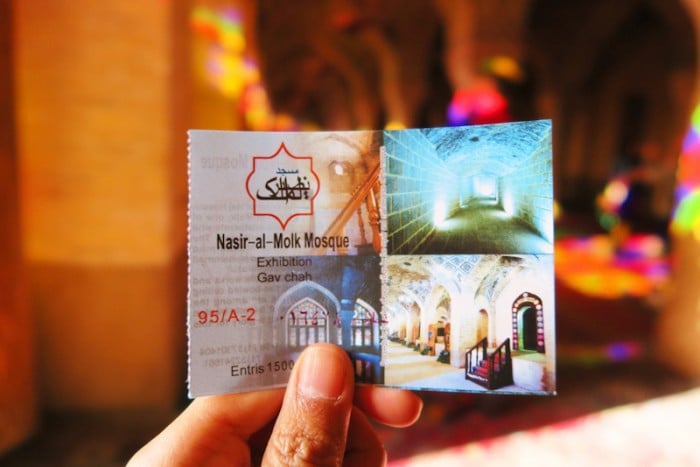
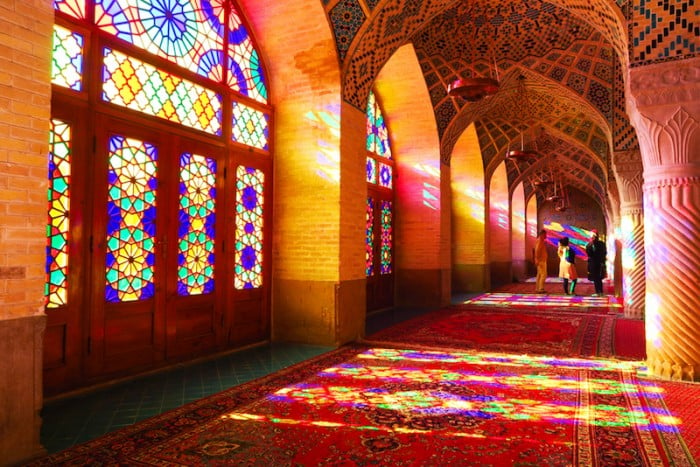
Nasir ol Molk Mosque (or Pink Mosque) in Shiraz
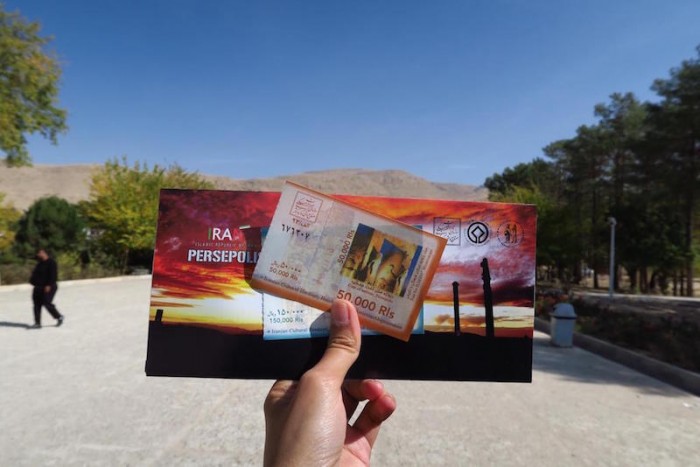
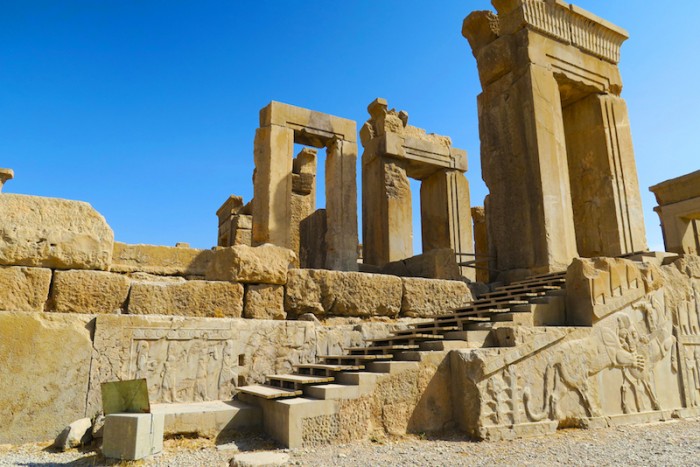
Persepolis
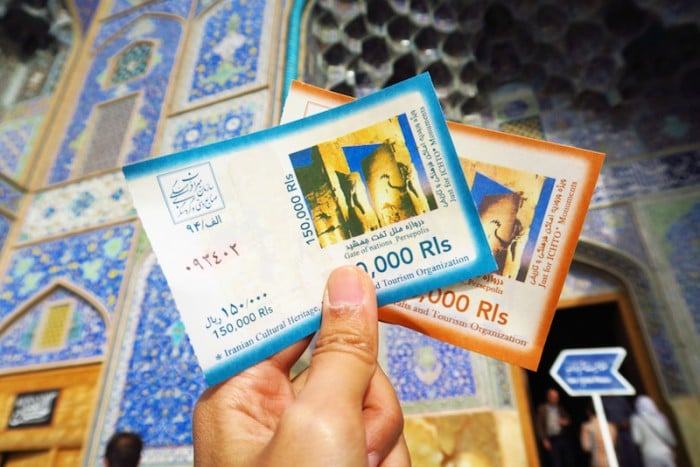
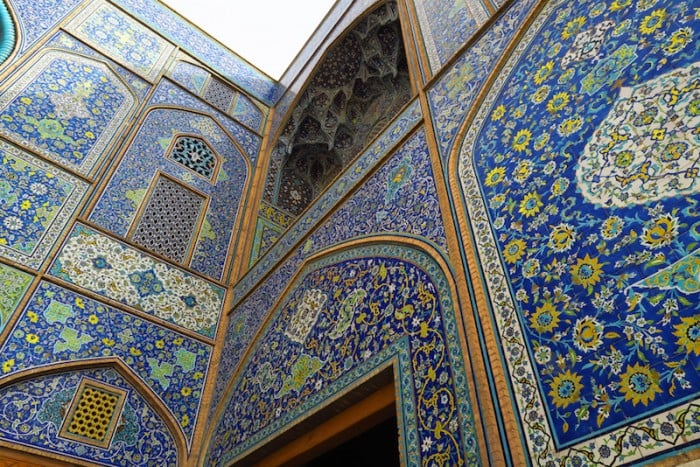
Sheikh Lotfollah Mosque in Isfahan
Here’s what will quickly squeeze your wallet dry if you don’t watch out: entrance fees to attractions. Entrance to mosques, palaces, gardens and other attractions usually range from 150,000 to 200,000 rial, and the spendings quickly add up when you hop from one attraction to the next. So set aside an appropriate budget for the day just for this, or pick out the attractions you really want to visit each city.
16. When wandering around Iran, LOOK UP!
I’ll let the pictures speak for themselves at this point.
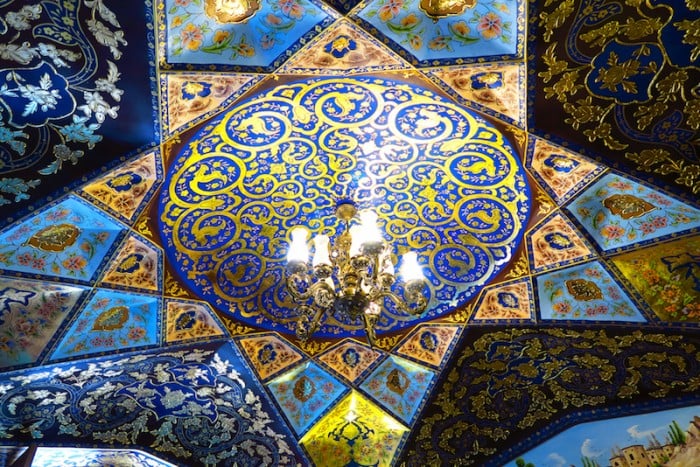
Bahar Narenj cafe in Jolfa, the Armenian Quarter of Isfahan
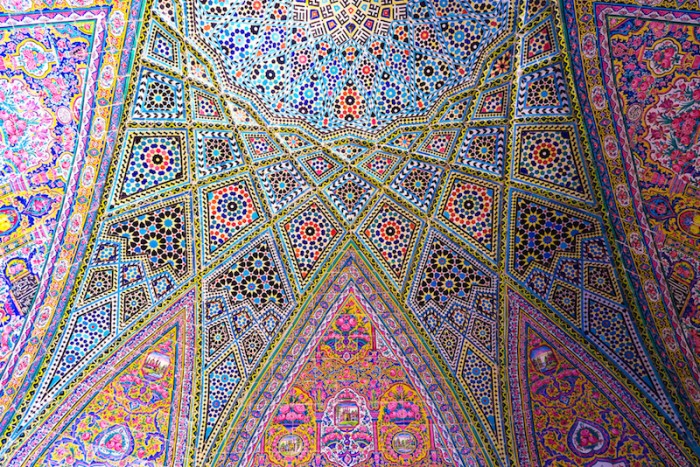
Nasir ol Molk Mosque (or Pink Mosque) in Shiraz
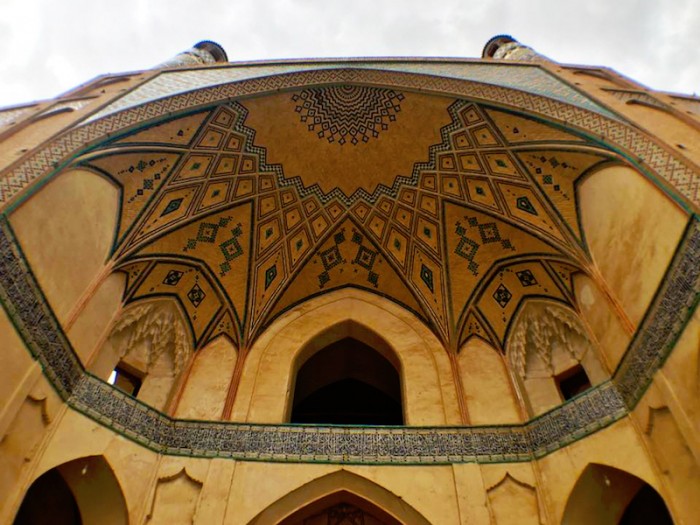
Agha Bozorg Mosque in Kashan
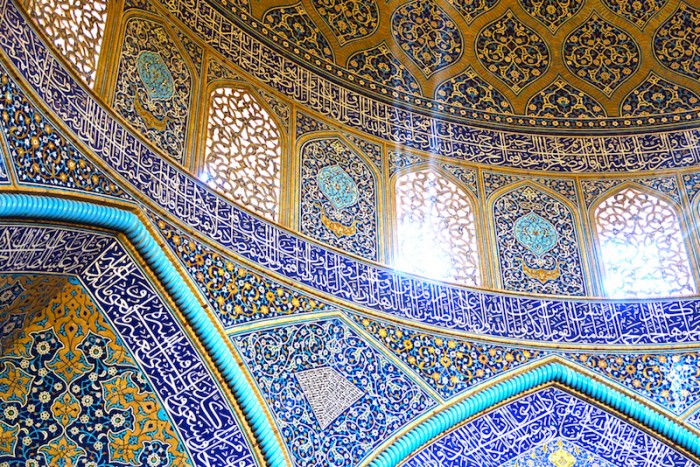
Sheikh Lotfollah Mosque in Isfahan
17. Bring a camera
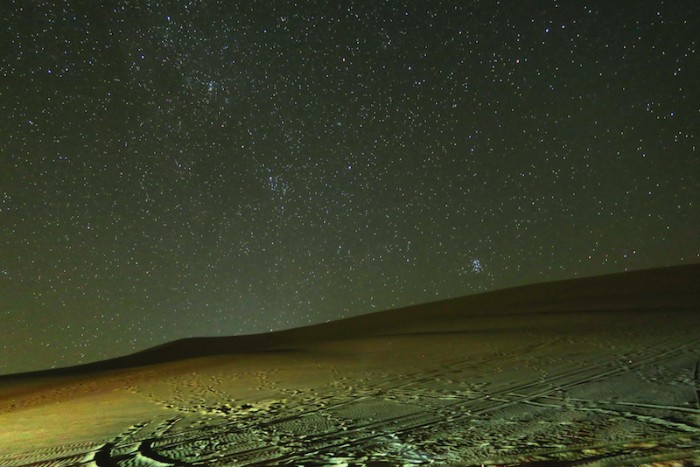
The starry night skies in Varzaneh. If you’d like to get an affordable desert tour to Varzaneh from Isfahan, feel free to contact my friend Ali at +98 913 601 0442 (Telegram or WhatsApp).
Don’t forget to bring a camera along because there are just so many amazing shots you can capture in Iran! I usually travel with just my phone, but I’ve seen jaw-dropping photos of places I’ve been which made me regret not trying harder. This article is filled with so many beautiful photos because my photographer-friend came along with me on my last trip to Iran!
18. Try Iranian food and desserts
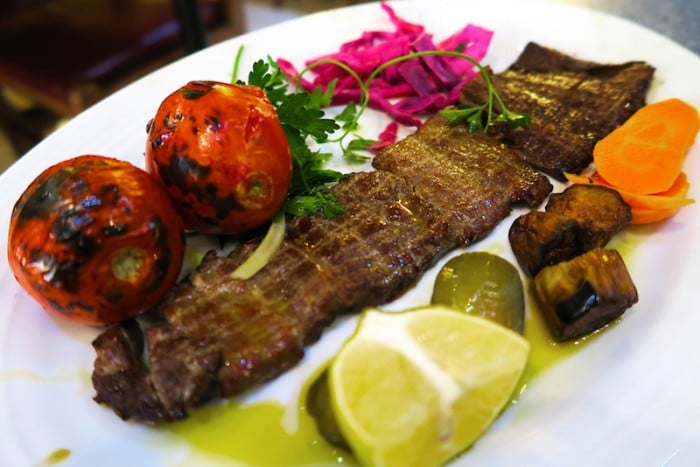
One of the many versions of Iranian kebab!
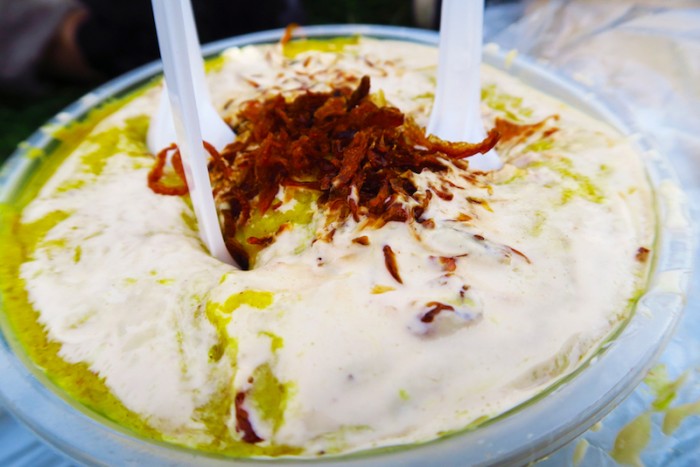
Halim bademjan, an eggplant dip with lamb and yoghurt

A delicious bowl of fereni (rice flour porridge with date sauce)
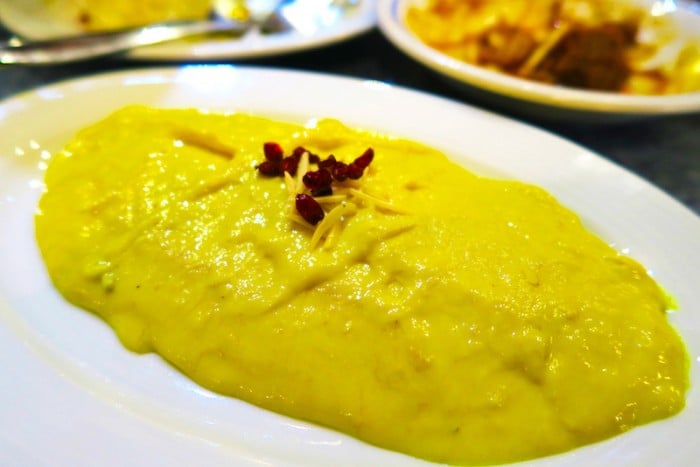
Khoresht mast, a sweet pudding dessert containing yoghurt, saffron and lamb neck (yes!!)
19. Say goodbye to alcohol (maybe) and hello to DOOGH
Alcohol is officially banned in Iran, so you can forget about easy access to booze in shops and restaurants. However, (and not surprisingly) locals can get their hands on alcohol from the black market. If you’re invited to a local’s home or a private party, you might be offered some. One of my hosts actually showed me how he made his own alcohol at home, which was pretty cool.
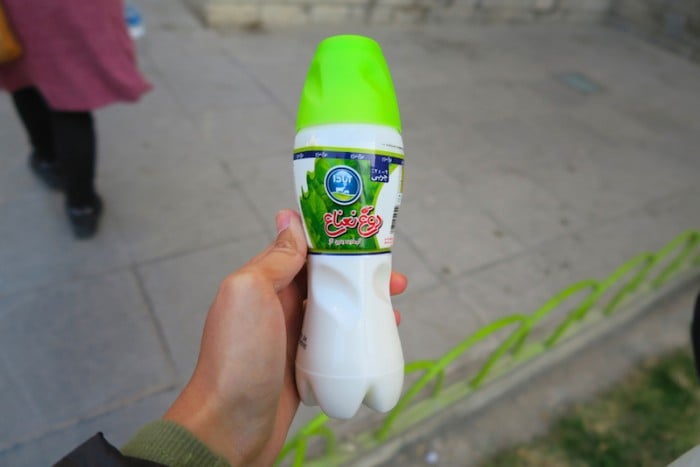
A bottle of doogh
Instead of alcohol, you have to try doogh! Doogh is a popular beverage in Iran, made of yoghurt, water and mint. It is often salty and honestly, it’s not my favourite drink, but try it anyway!
20. Join the “See You in Iran” Facebook group
The See You in Iran Facebook Group is a fantastic resource for travellers! Join this group of 80,000+ (and counting) travellers and locals to get your dose of information on anything and everything Iran. Should you need help with your trip, try the search box before posting your questions to the group, as your query might have been already asked and answered.
21. Learn some Persian words
This applies to all countries that you travel to, really. Learning some Persian words (and also the numerals) will go a long way. Greet someone by saying “salam” and thank them by saying “merci”. Some cool words you can use include “chandeh” which means how much, “baleh” which means yes, and “khosh-mazeh” which means delicious. One line I use often is “nemi fahmam” because it means “I don’t understand”.
22. Know that thing about “Taarof”
The thing about Taarof is that it can put you (and a local) in an awkward spot if you’re not familiar with it. Many social behaviours in Iran are influenced by the tradition of Taarof, which involves politeness as a form of respect. Should you encounter a shopkeeper or taxi driver who refuses to accept your money, this is Taarof in the play. You should insist on paying a few times until they take your money.
Sometimes, Iranians might make offers, invitations, or say things that are overly kind/polite but are not really sincere. This is also Taarof. If you’re a visitor in Iran, I would recommend reading up about this interesting Iranian cultural practice to avoid sticky situations or misunderstandings.
23. ASK (if you need help) and you shall receive
Need help? Just ask! Iranians are MOST helpful to tourists, so don’t be afraid to ask whenever you need help. I’ve been touched over and over again at how Iranians would go the extra mile just to help me out. It might require plenty of sign/body language, but I’ve also been surprised that so many locals could speak English, especially in Tehran! It was at least on three occasions that I approached random strangers for help, and they could converse perfectly well in English.
24. The weekend is on Thursday and Friday
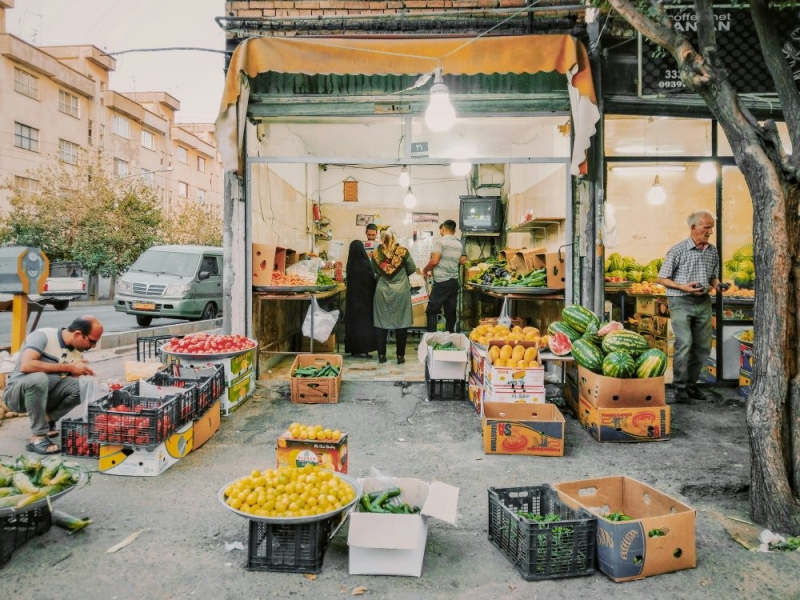
Image credit: Amir Babaei | Unsplash
The Iranian calendar has a unique structure compared to the global standard. The week starts on Saturday and ends on Friday, with Thursday and Friday being the weekend days.
Most shops in Iran operate from Saturday to Thursday, typically opening around 10.00pm and closing at 9.00pm. Grocery stores, on the other hand, tend to have earlier opening hours, starting around 6.30am-7.00am and closing at 10.00pm-10.30pm daily. Malls and shopping centers generally open at 10.00am-11:00am and stay open until 11.30pm-12.00pm, even on Fridays.
Restaurants and cafes in major cities often have extended opening hours. Cafes typically operate from 8.00am until 12.oopm, while restaurants are open from 11.00am until 12.00pm every day. Also, it’s worth noting that during summer, many local shops and bazaars in hot cities close for a few hours, usually from 2.00pm to 4.00pm.
25. Make friends with locals
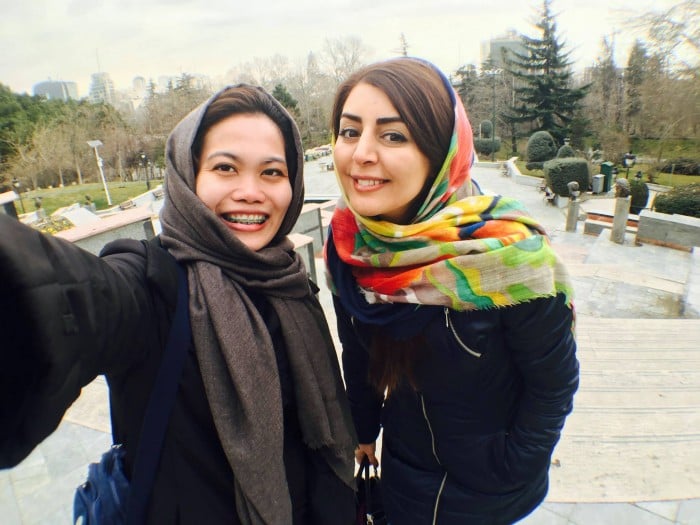
Shohreh, the angel I was lucky to have met on the plane on my first-ever trip to Iran
One of the main reasons why Iran left such a huge impression on me is the wonderful friendships that I forged while travelling. The best memories I made in Iran were that of hanging out with new friends in their homes or around the city.
So get out there, talk to people, and Iran WILL be unforgettable and maybe even life-changing.
Also Read: 26 Fun Things to Do in Iran on Your First Visit
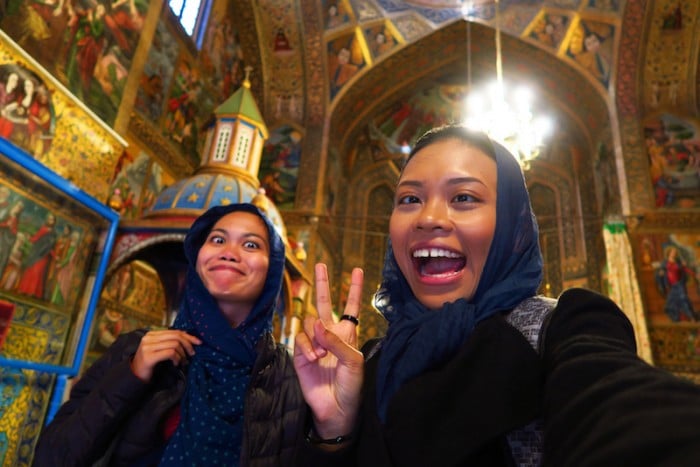
Special thanks to Nurmani (right), my travel buddy & colleague in TripZilla, for snapping the amazing photos in this article!
